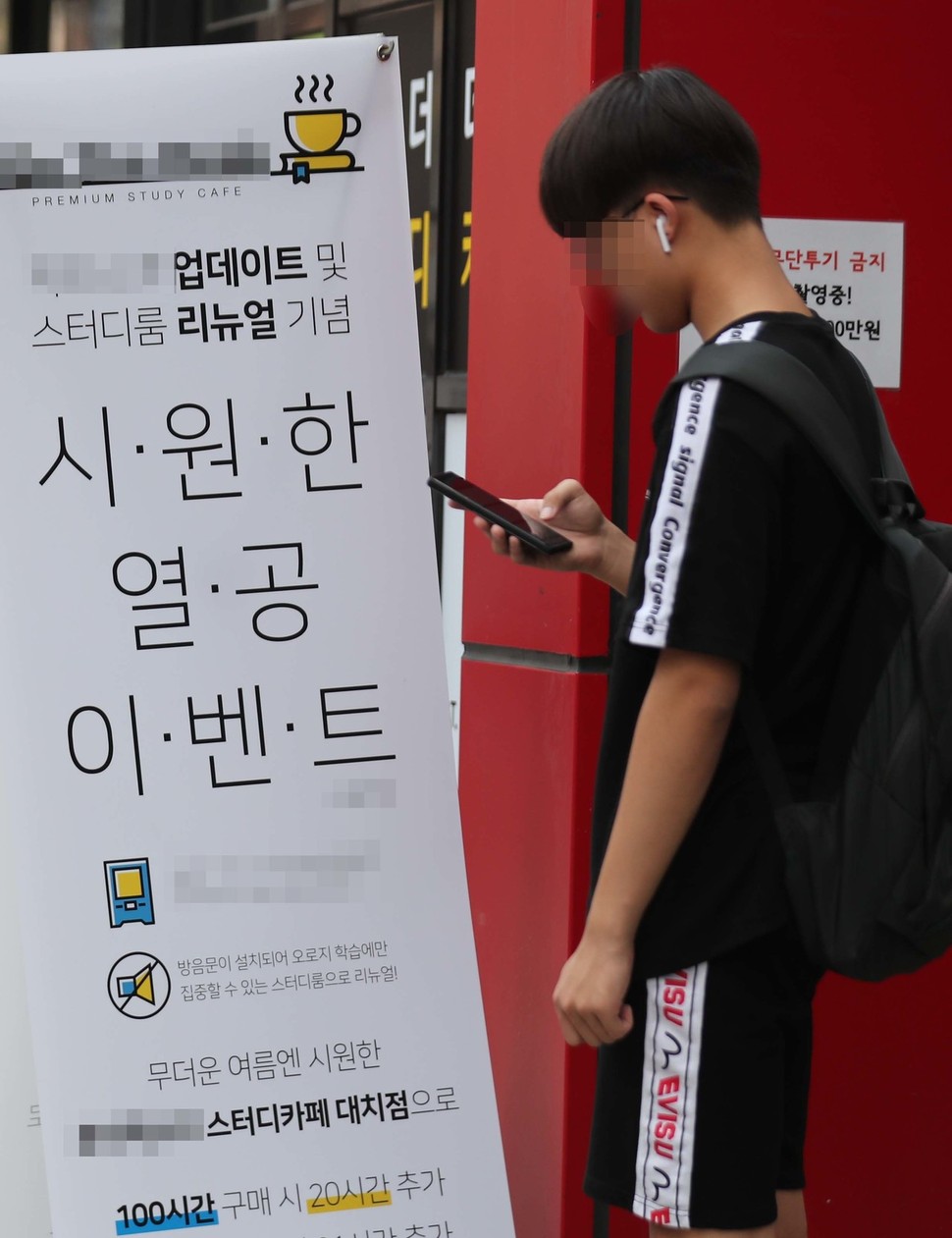 |
|
A student in front of a study café in Seoul. (Baek So-ah, staff photographer)
|
SMOE to survey public opinion on measure mandating private academies’ Sunday closure
The attempt by the Seoul Metropolitan Office of Education (SMOE) to make private academies close their doors on Sunday is laudable in its intent, but there’s considerable debate about its efficacy. One question is whether there’s any point in merely preventing academies from offering classes on Sunday given the undeniable stratification of the country’s high schools and universities. There’s also the concern that doing so may actually inflate the money parents spend on extracurricular teaching by forcing them to hire pricey private tutors. SMOE itself seems determined to take a page from deliberative democracy by canvassing opinions from a range of stakeholders in a public discussion, rather than moving immediately to alter public ordinances. This article will examine what the debate about shutting down Sunday classes at private academies will involve. Plans released by SMOE on Sept. 19 confirm the broad strokes of the public discussion, which will be organized by a recently established committee of seven and a panel of ten advisors. The project centers on two debates to be attended by a jury of 200 ordinary citizens, with preliminary activities planned to ensure a wide range of opinions are collected. A public opinion poll of some 23,500 individuals will be carried out through Oct. 15, querying respondents about their current attitude toward closing academies on Sunday and their rationale for that attitude. Then on Sept. 27 and Oct. 22, open debates will be held, prior to the main debates, providing material for “online deliberation” by the citizens’ jury. The 200 members of the citizens’ jury will consist of 80 students, 60 parents of students, 30 teachers, and 30 others, with 10 of the 80 students in elementary school. The members of the jury will participate in online deliberation by voicing their opinions on a website and then will take part in two debates, held on Oct. 26 and Nov. 9. These debates will include on-site surveys, both before and afterward, expert presentations, and small-group discussions. Finally, the public discussion committee will draw up a recommendation based on the results of the activity of the citizens’ jury. Even if the public discussion demonstrates strong support for banning Sunday classes at academies, there are still legal and institutional obstacles to be overcome. In order to impose the ban, SMOE would have to alter city ordinances, which could prompt a legal debate about the authority of the superintendent of education. According to the Act on the Establishment and Operation of Private Teaching Institutes and Extra Lessons, education superintendents are only authorized to regulate “teaching hours” through their municipal and provincial ordinances. In 2017, the Ministry of Government Legislation ruled that education superintendents could use those ordinances to restrict late-night classes, but not to mandate “teaching holidays” that would prevent academies from opening on specific days or weekends. Revising the related legislation would be a more certain way to ban Sunday instruction, but that would have to be debated at the National Assembly, not the Ministry of Education. “Since this is a sensitive issue, we’ve chosen to start with opinion canvassing, and the question of whether to institute this policy will have to be decided after that. That said, I think that public opinion favors [moving ahead with the policy],” Seoul Superintendent of Education Cho Hui-yeon told reporters on Sept. 18. A study about banning academy instruction on public holidays and placing a cap on academy tuition that was released by the Seoul Education Research and Information Institute in 2017 found that not only 75% of middle school students but also 68% of students’ parents supported the idea of closing academies on Sunday. Cho offered the following thoughts about the legal and institutional issue: “If the public discussion brings us to the point of enacting an ordinance, the very debate about the legal legitimacy of that ordinance can be seen as part of deliberative democracy. During that process, the National Assembly could also take steps to pass a law banning the operation of private academies on Sundays.” By Choi Won-hyung, staff photographer Please direct comments or questions to [english@hani.co.kr]






